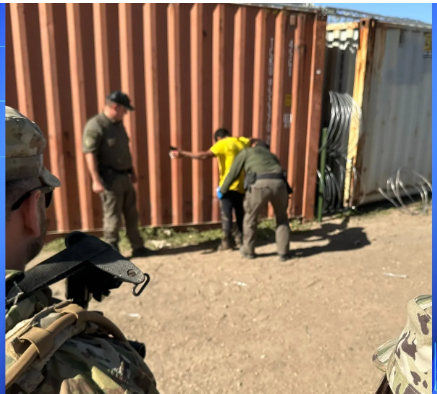In a bold move that intensifies the ongoing border crisis, Texas authorities have started arresting migrants illegally crossing the border, marking a new chapter in the state’s ongoing battle with the Biden administration. This development follows a cease-and-desist letter from the administration, demanding Texas to allow federal Border Patrol agents back into the area now controlled by the state’s National Guard. Correspondent Ali Bradley, reporting live from Eagle Pass, Texas, provides an in-depth look at this border battle.
The On-Ground Situation in Eagle Pass
The situation in Eagle Pass, Texas, is a microcosm of the larger border crisis. The state has fortified its borders with new concertina wire and other physical barriers, visibly escalating its efforts to curb illegal crossings. Texas Department of Public Safety (DPS) officers have been arresting migrants who cross the Rio Grande, a stark departure from previous practice where these individuals were turned over to Border Patrol.
The Biden administration, through the Department of Homeland Security (DHS), has expressed its desire for full access to the areas like Shelby Park, which Texas has declined. Instead, Texas has doubled down on its border security measures, creating a standoff with potential legal and political implications. This clash has raised concerns about a possible confrontation between state and federal authorities.
Border Patrol agents have expressed their wish to be present in the park with body cameras to document any potential confrontations. DHS gave Governor Greg Abbott a deadline to grant them full access, which was not met, leading to the possibility of DHS taking the matter to the Department of Justice. However, no filing has been reported as of yet.

The White House and DHS have criticized Texas for blocking agents from assisting migrants in distress, highlighting a recent tragic incident where a woman and two children drowned. The administration admitted that the migrants perished at least an hour before Border Patrol sought access to the park, raising questions about the efficiency and coordination of border operations.
The legal aspects of this standoff are complex. Homeland Security Committee Chairman Mark Green has pointed out that Texas may be within its rights to enforce border security if the federal government fails to do so. This view underscores a constitutional debate about state versus federal jurisdiction in border management.
From Texas’ viewpoint, their actions are a necessary response to what they perceive as federal inaction in securing the border. The state argues that its measures are crucial in deterring the “pull factors” that attract people to enter the country illegally.
On the other hand, the federal government views these actions as an overreach of state power, potentially hindering the federal mandate to manage border security and immigration. This conflict points to a broader issue of federalism and the balance of power between state and national governments.
The Road Ahead
Read More:
- Nearly 60 dead as Arctic cold blankets the nation
- Massive Drug Trafficking Ring Uncovered in Georgia: 18 Defendants Face Charges
- N.Y. midwife falsified thousands of vaccine records
The situation in Texas highlights the complexities and challenges of border security and immigration policy in the United States. As the federal and state governments navigate this contentious issue, the outcomes of this standoff will have significant implications for border policy, state-federal relations, and the lives of migrants seeking entry into the United States. As the situation continues to develop, all eyes remain on Texas and the federal response to this unprecedented challenge in border management.

